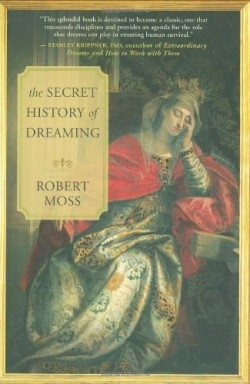The Secret History of Dreaming
When June Carter gave Johnny Cash “Ring of Fire” to record, country music was confined to a narrow range of instruments that did not include horns or even drums. The night before he was set to record the song, Cash dreamed he was singing it with “Mexican bullfighting trumpets” framing the lyrics. This arrangement introduced a brand new sound to country music fans; the song went on to become a huge hit and rocketed Cash to superstardom.
Stories of musicians and other artists being inspired by dreams are fairly common. However, this is not the only arena of human experience where dreams have, and still do, play a major role. Moss, a former professor of ancient history at the Australian National University and author of The Three Only Things: Tapping the Power of Dreams, Coincidence, and Imagination, presents a history of dreaming from ancient civilizations to today’s modern society.
In ancient cultures, dreaming was often viewed as an integral part of life. There were dedicated dreamers in Egypt who counseled the pharaohs, and the Iroquois of North America began each day with a discussion of dreams from the night before, using the messages to direct hunts or treat illnesses. In modern times, athletes “run movies” in their minds of upcoming games. Bill Russell, a Boston Celtics star and gold medalist at the 1956 Olympics, attributed his ability to execute new and innovative plays on the court to mentally rehearsing games on long bus rides.
This book will appeal most to those with an interest in spirituality, paranormal phenomena, or anthropology. It often resembles a textbook in the sheer amount of historical information it provides on a wealth of cultures and individuals. However, Moss’s engaging style pulls the reader in with chapter openings that read like a novel: “When she lies down on her narrow bed, a man comes to her. When he touches her, all her senses come aflame, though she does not explain this to the priest who arrives every morning to steal her dreams on the pretext of hearing her confession.”
It is imperative that modern society regains a respect for dreams, Moss contends. Years before the conquistadors arrived, dream-seers told Montezuma of visions of mountains moving on water and metal serpents that spewed fire. Rather than listen, Montezuma had them jailed and slowly starved to death. “There is a message for us in Montezuma’s mistake,” Moss warns.
Reviewed by
Christine Canfield
Disclosure: This article is not an endorsement, but a review. The publisher of this book provided free copies of the book to have their book reviewed by a professional reviewer. No fee was paid by the publisher for this review. Foreword Reviews only recommends books that we love. Foreword Magazine, Inc. is disclosing this in accordance with the Federal Trade Commission’s 16 CFR, Part 255.

